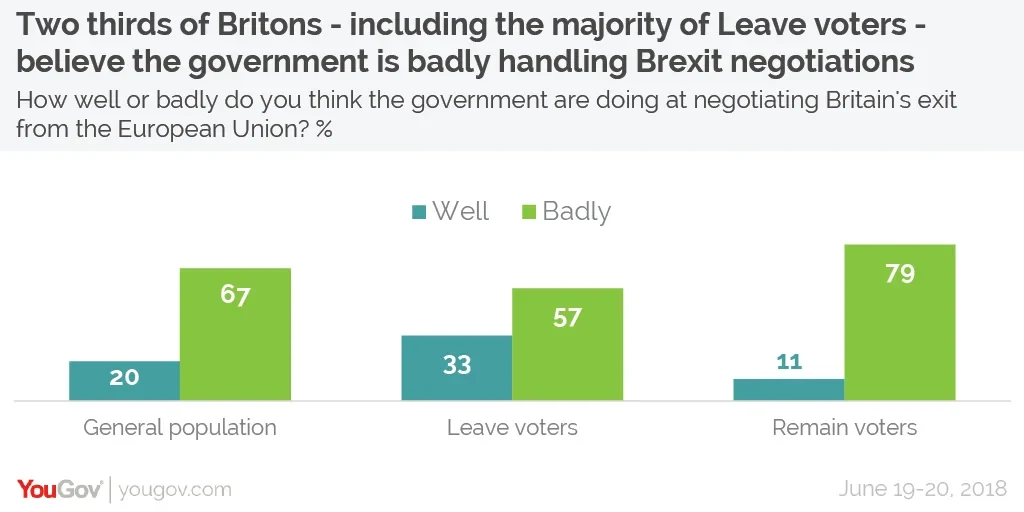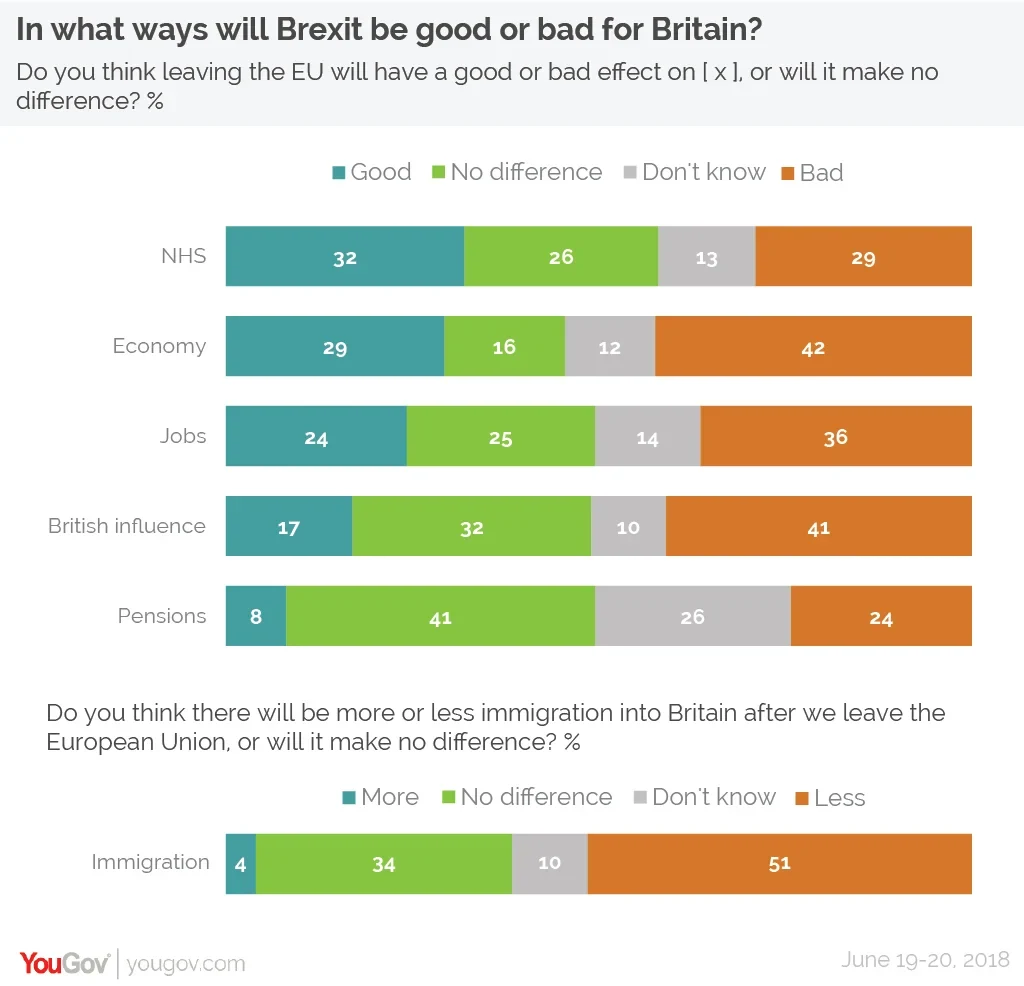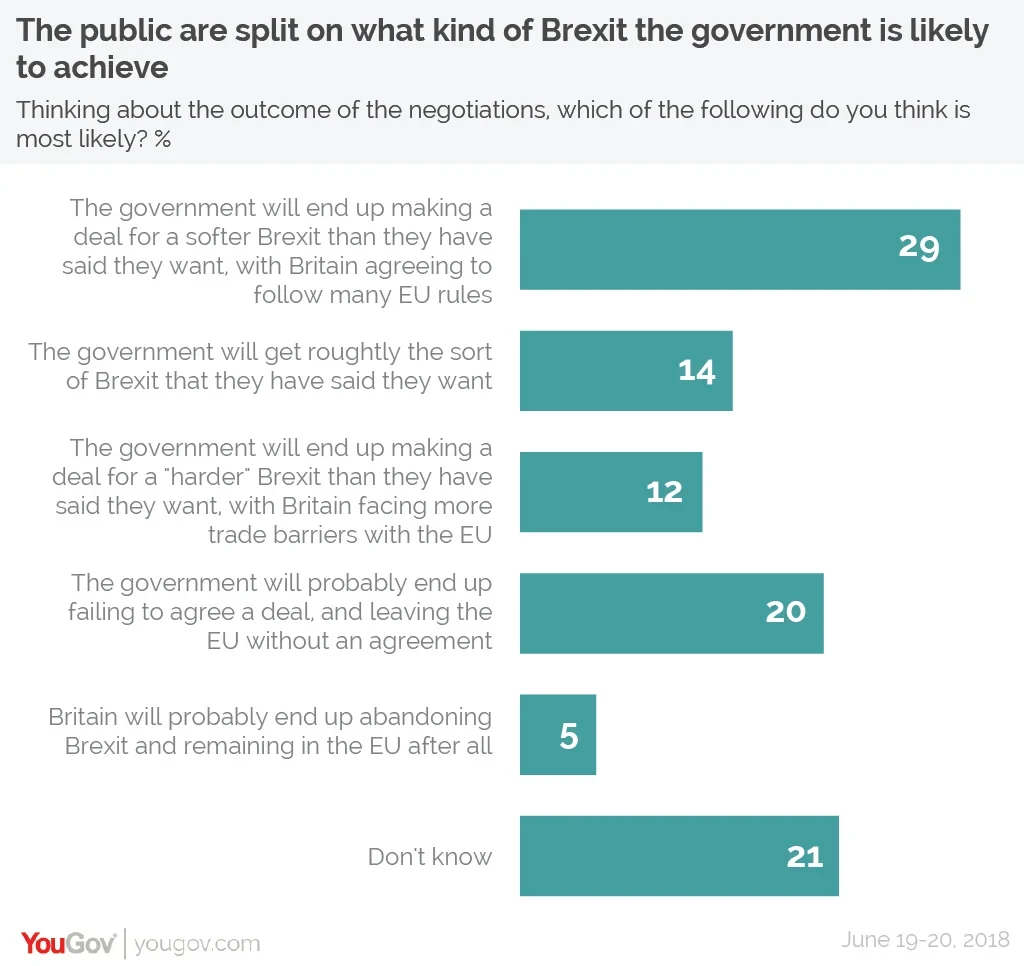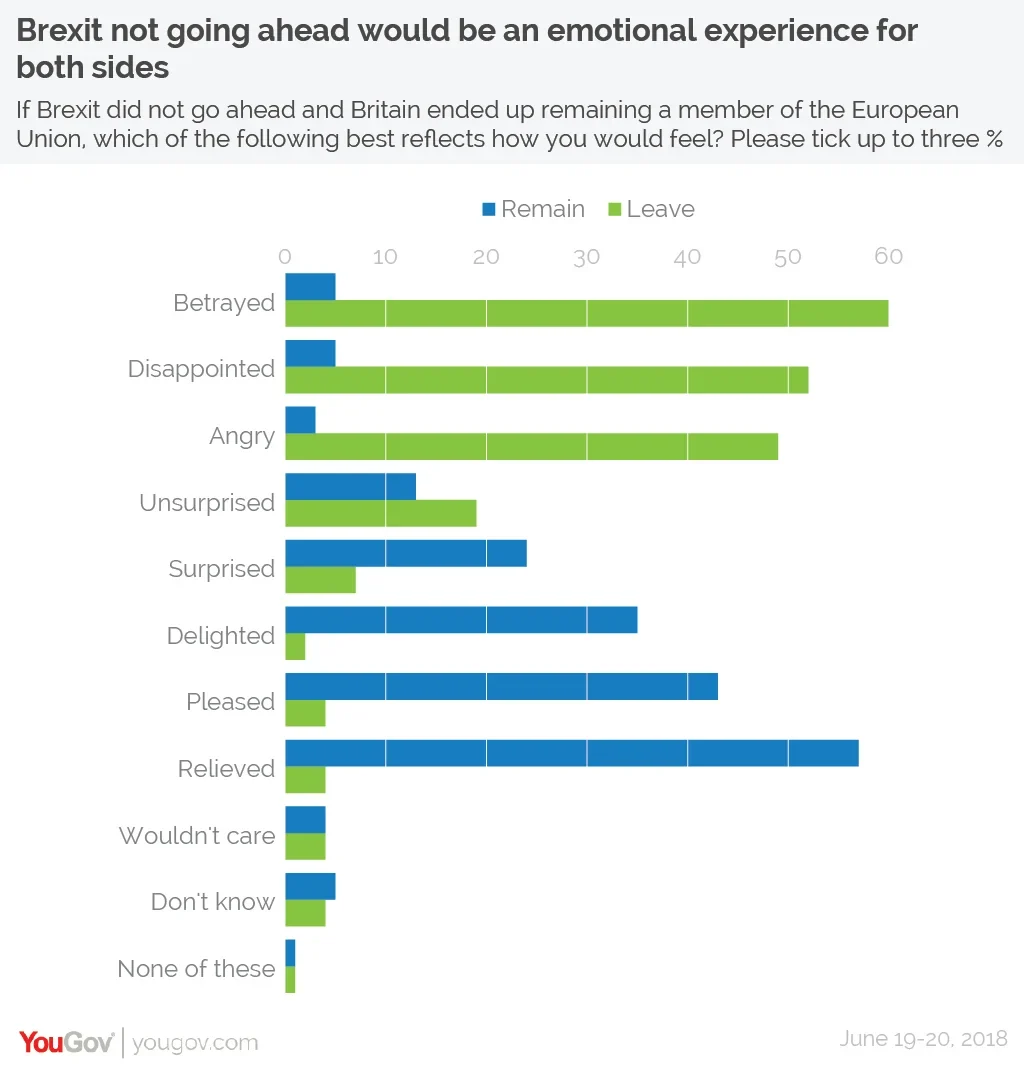Where does public opinion stand?
This Saturday marks two years since the EU referendum. The first of several pieces of legislation necessary to enable the UK to leave the European Union has now passed the Commons, the Brexit negotiations in Europe are making slow progress, but where does public opinion stand?
The overall picture is a negative one. Slightly more of the British public think that voting to leave the EU was wrong for Britain than think it was the right decision, and on most measures more people expect it will have a negative than a positive impact.
On top of this, a large majority think that the government is doing badly at negotiating the UK’s withdrawal from the European Union. People aren’t clear what either of the main parties really thinks about Brexit and don’t much support either Theresa May’s or Jeremy Corbyn’s stances towards Europe.
Despite all this negativity, most people still think the government should go ahead with Brexit, and the overwhelming majority expect that Britain will – ultimately – end up leaving.
How do the public think Brexit is going?
On the whole, people think the government is handling Brexit badly. Just 20% of people think that the government is doing well at negotiating Britain’s exit from the EU, with two-thirds (67%) thinking they are doing badly. This includes a majority of both Remain and Leave voters. Half (50%) of people think that the European Union has the upper hand in negotiations and that the UK has generally accepted their demands, just 3% think that Britain is getting the better deal.

That’s not to say people are necessarily paying much attention to the process of Brexit, though. Almost half (48%) say they are either not following it closely or aren’t following it at all, and a majority (56%) think that news coverage about Brexit and the negotiations is boring.
Neither of the main political parties come out of the polling well. Just a quarter (26%) of the public believe that the Tory party has a clear policy on Brexit, while Labour fares even worse on just 14%. Although Theresa May beats Jeremy Corbyn by 32% to 14% when it comes to who people would trust more to negotiate our exit from the EU, 38% say they would trust neither.
What impact do people think will Brexit have?
Expectations about the impact of Brexit also remain negative – though in most cases this is unchanged from how the public felt at the time of the referendum. More people expect the UK leaving the EU to be negative for the economy than think it will be positive, more reckon it will reduce Britain’s influence in the world, to be bad for jobs, and bad for pensions. (However, one interesting change in our latest polling – conducted shortly after the government’s announcement of extra funding for the NHS – is that marginally more people now think Brexit will be good for the National Health Service.)

However, the reason for this is that while, predictably, Remainers expect Brexit to have a negative effect on the economy and public services, Leavers are split. While some expect a positive impact, others think there will be little change either way and who, presumably, support Brexit for other reasons, such as sovereignty and control of laws.
Do people still want to go ahead with Brexit?
The main question many people ask is whether people still want Brexit or have voters changed their minds? This simple sounding question is actually a little more nuanced than you may think.
On one hand, public opinion has moved a little against Brexit. Our regular tracking question on whether the vote to leave the EU was the right or wrong decision now consistently finds slightly more people think that Brexit was the wrong decision. This small lead has been consistent throughout 2018.
However, just because people think Brexit is the wrong decision, it doesn’t necessarily mean they think it should be reversed. They do not. When we ask what people think the government should do about leaving the EU, just over half (53%) think that it should go ahead with Brexit, mostly on its current course (42%) though 11% would prefer a softer Brexit. A fifth (21%) think that the government should call a fresh referendum instead, while 13% would prefer them just to halt Brexit altogether.
Neither is there much support for other means by which the decision to leave the EU could be reversed. By 50% to 29% people think it would be illegitimate for MPs in the House of Commons to vote against Brexit going ahead, and by 45% to 37% people oppose the idea of another referendum once the terms of the withdrawal negotiations are known.
Expectations
Only 29% of people think that is it likely that the government will be able to successfully negotiate a deal in time for Britain to leave the EU next year. However, in the longer term the vast majority of people think that Brexit will go ahead, just not necessarily on the terms that Theresa May wants.
Only 14% of people think that the government will get the sort of deal it has stated it wants. Around three in ten (29%) expect the UK will end up with a “softer” Brexit than the government wants with Britain following many EU rules, while 12% think the government will end up with a “harder” Brexit than it says it wants. One in five (20%) believe the UK will leave without any deal, and just 5% expect the UK will end up staying.

What if Brexit didn’t happen?
Finally, we asked how people would react should the unexpected happen and Brexit did not end up going ahead. As you might expect, opinions are very different between Remainers and Leavers. Among Remain voters, 57% would be relieved, 43% pleased and 35% delighted. However, 60% of Leave voters said they would feel betrayed, 52% disappointed and 49% angry.
Just 5% of people said they wouldn’t care.

Photo: Getty






